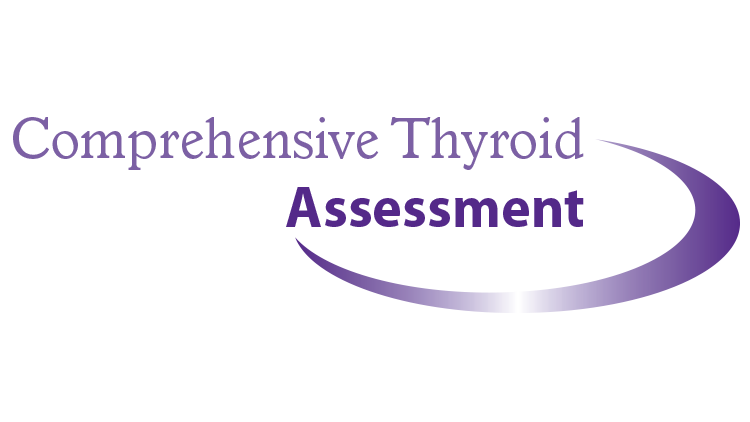Description
The Comprehensive Thyroid Assessment is a hormone test that provides a thorough analysis of thyroid hormone metabolism. It includes central thyroid gland regulation and activity, thyroid production and secretion, peripheral thyroid conversion, and thyroid autoimmunity. This hormone test allows the practitioner to pinpoint common imbalances that underlie a broad spectrum of chronic illness. This test analyzes serum levels of TSH, free T4, free T3, reverse T3, anti-TG antibodies, and anti-TPO antibodies to assess central and peripheral thyroid function, as well as thyroid auto-immunity.
Thyroid hormones are essential and primary regulators of the body’s metabolism. Hormone imbalances can affect virtually every metabolic process in the body, exerting significant effects on mood and energy level.
Symptoms of thyroid hormone imbalances can include:
- Fatigue
- Depression
- Coldness
- Constipation
- Poor skin
- Headaches
- PMS
- Dysmenorrhea
- Fluid retention
- Weight gain
- Anxiety/Panic attacks
- Decreased memory and concentration
- Muscle and joint pain
- Low sex drive
Thyroid hormone function has a profound impact on overall health via:
- Modulation of carbohydrate, protein, and fat metabolism
- Vitamin utilization
- Mitochondrial function
- Digestive process
- Muscle and nerve activity
- Blood flow
- Oxygen utilization
- Hormone secretion
- Sexual and reproductive health
- Many other physiological parameters
Thyroid Hormone Testing
The Comprehensive Thyroid Assessment is a hormonal test which reveals imbalances that often go undetected with more limited assessments. This thyroid hormone testing measures:
- Unbound levels of T4 and T3 which reflect the bioactive portion of thyroid hormone. This hormone assessment can identify not only overt hyper-and hypothyroidism, but subtle sub-clinical manifestations of thyroid dysfunction.
- Reverse T3, levels of which can increase when peripheral conversion to T4 to active T3 is impaired. Peripheral thyroid imbalances may arise from nutrient shortages, heavy metal exposure, adrenal stress, enzyme deficiencies, and other chronic illness.
- Thyroid antibody levels, which help gauge autoimmune response and may reflect metabolic irregularities and hypothyroidism even when TSH and T4 levels appear normal. Thyroid antibody levels may rise in response to trauma, dysbiosis, inflammation (including thyroiditis) or progressive thyroid degeneration.
Ensuring healthy thyroid function is clinically essential. Optimal thyroid function may help safeguard against the pathogenesis of diabetes, obesity, heart disease, and depression. Thyroid hormones also play central metabolic roles in healthy sexual and reproductive function in both women and men. Because they are essential for IGF-1 production, thyroid hormones significantly affect lipid metabolism.
Test Type: Blood Test



